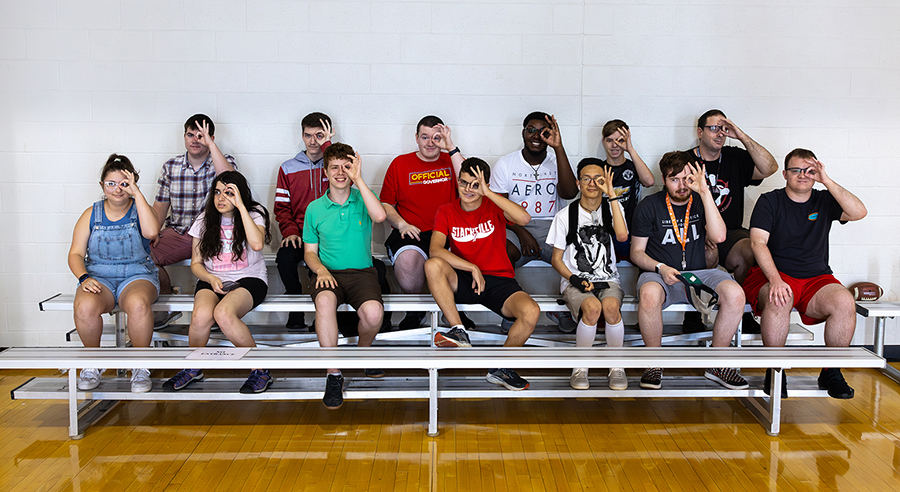Our History
Full Spectrum Learning (FSL) was established based on the desire of members of the APSU faculty and staff to create a university that is Autism friendly and promotes a climate of acceptance and support. In October of 2013, focus groups were held to determine the main needs on our campus to make this program a reality. Faculty and staff of APSU, APSU students with and without an ASD diagnosis, parents, community doctors and therapists, and university administration all came together for discussion, and it was decided that the main areas of focus for the program would be promoting success in academics, providing guidance for transition and social concerns, and developing faculty training. The first group of mentors was chosen and trained to work with the incoming participants in the spring semester of 2014, and this group of APSU students voted to name the program Full Spectrum Learning. The first cohort entered the pilot program in the fall of 2014, and the 2015-2016 academic year was FSL's first as an official program at APSU. The program is now self-sustaining, and has been a permanent part of APSU's services.
Full Spectrum Learning Program at APSU continues to grow
Research
Three tenets that are central to Full Spectrum Learning are that it is student-driven, research-based, and self-sustaining. Having the program research-based ensures that results are measured and documented in such a way that they can be best used for continuous program improvement. Below are some of the current research projects being carried out at FSL to make sure we are providing the most effective program possible to students with Autism Spectrum Disorder (ASD):
